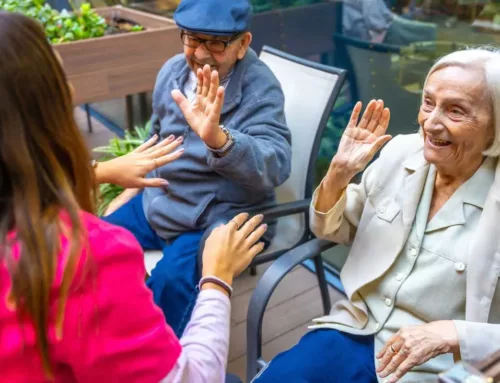
How a senior adapts to the challenges presented by aging is impacted by everything from their health and medical conditions, to whether they still reside at home or have moved to an assisted living community. It’s often difficult for family caregivers to know just how to help their loved one, and bringing up the topic of support can be tricky. If an aging senior is fiercely independent or resistant to change, this might be especially true.
When deciding how to support your loved one, it can be useful to discuss their needs in depth. Parents and senior relatives are often used to being the caregivers, and it can be difficult for them to accept such a significant shift in roles. Therefore, keeping your loved one involved in the process may prevent them from feeling unheard or not in control.
Regardless of your relative’s personal situation, there are some key changes you can make to help them. Here are just five valuable ways you can support an aging loved one.
1. Adapt their home for enhanced safety.
Safety in the home is a key issue for many seniors, especially if they still live independently. Thankfully, there are a whole host of provisions you can put in place to increase home safety, like installing grab bars and non-slip surfaces in the bathroom, and sturdy handrails on any staircases. Making sure lighting is bright and rooms are free from clutter can also go a long way in preventing trips and falls.
2. Use technology to support them.
While many seniors still feel a little overwhelmed by digitalization, technology can truly be a valuable tool for seniors and family caregivers alike. For example, if your loved one is struggling with loneliness and lives a distance from family or friends, teach them how to use simple video calling and instant messaging services. Technology has many more uses than expanding social opportunities for aging seniors, though – you can also use it to keep your loved one safe. For example, you might wish to set a medical alert system up for your parent, with a wearable pendant they can use to alert emergency services if they have a fall or accident.
3. Help out with errands.
As a senior ages, even daily errands that were once simple can become challenging. Things like grocery shopping require a great deal of physical mobility, and if a senior has memory loss, remembering what to buy or even how to get to where they need to be might become difficult. If you live nearby, offering to run these errands either for or with your loved one can take a huge weight off their shoulders.
4. Organize their finances.
At a time when things like safety, isolation and health conditions are of key concern, it’s easy to forget how aging can impact a senior’s finances. It’s not uncommon for seniors to feel overwhelmed when taking care of their financial affairs, particularly as money management and billing move further into the digital sphere. Discussing finances can be tricky, but it’s a worthwhile exercise. It may be that your parent would benefit from you managing their finances for them, or they might simply need a little practical help to get organized. For example, you might sit down together and assess their subscriptions, cancelling anything they no longer use.
5. Help them find suitable residential assisted living.
There comes a time in many aging seniors’ lives when living independently at home is no longer viable or safe. If your loved one is struggling with personal care and hygiene, has complex healthcare needs or lives with reduced mobility, looking into residential care homes in Tucson or memory care facilities could be a positive step. Accepting that a move to assisted living is needed can be difficult, so taking the lead in this process could be a great way to support your loved one.
Depending on your loved one’s situation, each of these things can be approached at a level appropriate for the care they need. For example, helping an aging senior to find a residential care home could mean doing this completely for them, or allowing them to do their own research while you take care of arranging visits and tours. Similarly, while helping with finances could mean taking complete control of their affairs, it could also be as basic as sorting through paperwork together and updating their filing system.
It’s important to avoid making your loved one feel as though you’re trying to take control of their life. Having an open discussion about their needs will enable you to determine the right level of help that will allow them to feel supported and empowered.
If your loved one is looking to move to residential assisted living in Tucson, you can find out more about our commitment to aging seniors by arranging a tour today.




